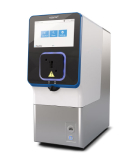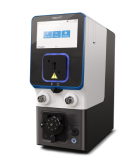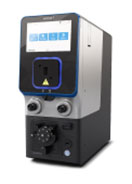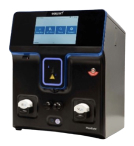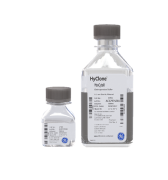Releases Details
Study Published in Science Translational Medicine
Released : January 12, 2017 07:00
MaxCyte, NIH NIAID Study Published in Science Translational Medicine Demonstrates CRISPR-Cas9 X-Linked CGD Gene Repair
- MaxCyte's Proprietary GT® System fosters translational development of ex vivo gene-corrected cell therapy as potential 'curative' treatment for monogenic diseases through robust, scalable manufacture process
The study was published in Science Translational Medicine[i] and entitled "CRISPR-Cas9 gene repair of hematopoietic stem cells from patients with X-linked chronic granulomatous disease."
Using MaxCyte's patented Flow Electroporation™ Technology, researchers demonstrated that transfecting three molecules, a single-strand oligonucleotide correction template, along with messenger RNA encoding for CRISPR-Cas9 gene editing complex and selected guide RNA into HSC obtained from individuals with X-CGD, resulted in correction of mutation in the CYBB gene. This correction occurred at clinically relevant levels following long-term engraftment in preclinical models.
"We are very encouraged by the preclinical data obtained in this study, which showed the effectiveness of MaxCyte's proprietary, high-performance technology to correct for genetic mutations, especially in cases where traditional viral vector-based gene insertion methods have not been effective," said Madhusudan V. Peshwa, Ph.D., MaxCyte's Chief Scientific Officer. "This study also demonstrates the commitment of MaxCyte to fostering development of novel cell therapies and supporting our partners' use of our delivery platform. MaxCyte invests early in translational development of non-virally engineered and ex vivo gene-edited cell therapy products."
CGD is an inherited genetic disorder that impairs the function of the immune system and leads to ongoing and severe bacterial infections. The disease affects approximately one in 250,000 people worldwide, according to MedScape, and is currently only treatable through high-risk treatments, such as allogeneic bone marrow transplantation. It is caused by a mutation in the CYBB gene, that enables immune cells to defend against microbes. The MaxCyte and NIAID researchers were able to restore function of the immune cells by repairing this mutation in CYBB.
About MaxCyte
MaxCyte is a developer and supplier of cell engineering products and technologies to biopharmaceutical firms engaged in cell therapy, drug discovery and development, biomanufacturing, gene editing and immuno-oncology markets. The Company's patented Flow Electroporation™ Technology enables its products to deliver fast, reliable and scalable cell engineering to drive the research and clinical development of a new generation of medicines.
MaxCyte's high performance platform allows transfection with any molecule or multiple molecules and is compatible with nearly all cell types, including hard-to-transfect human primary cells. It also provides a high degree of consistency and minimal cell disturbance, thereby facilitating rapid, large scale, clinical and commercial grade cell engineering in a non-viral system and with low toxicity concerns. The Company's cell engineering technology platform is CE-marked and FDA-accredited, providing MaxCyte's customers and partners with an established regulatory path.
Using the unique capabilities of its technology, MaxCyte is developing CARMA, its proprietary platform in immuno-oncology, to deliver a validated non-viral approach to CAR therapies across a broad range of cancer indications, including solid tumors where existing CAR-T approaches face significant challenges.
For more information, visit http://www.maxcyte.com/
|
|
|
[i] De Ravin, et al. (2017). CRISPR-Cas9 gene repair of hematopoietic stem cells from patients with X-linked chronic granulomatous disease. Science Translational Medicine, Vol 9: Issue 372.
This information is provided by RNS
